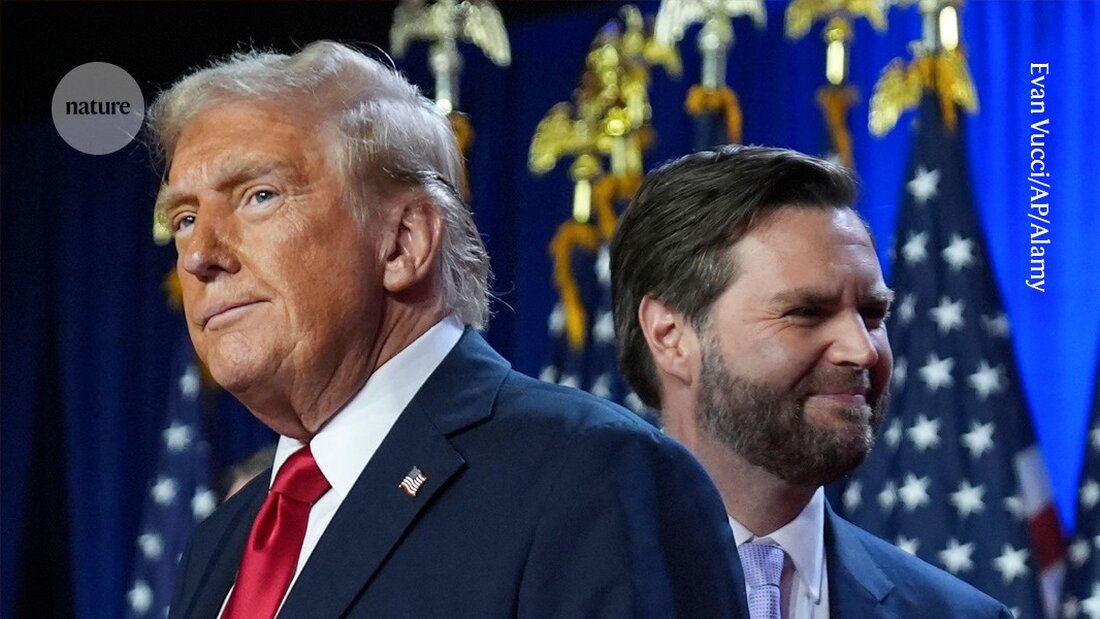Scientists around the world react to Trump's election: Ready for a new era!
Scientists around the world are reacting with concern to Trump's election as president and warning of implications for science and health.

Scientists around the world react to Trump's election: Ready for a new era!
Scientists worldwide expressed disappointment and concern as Republican Donald Trump won the final votes needed to secure the US presidency in the early hours of November 6. Due to Trump's anti-science rhetoric and actions during his final term in office Many are now preparing for four years of attacks on scientists inside and outside the government.
“In my long life of 82 years ... there has hardly been a day when I have felt sadder,” says Fraser Stoddart, a Nobel laureate who left the United States last year and is now chair of chemistry at the University of Hong Kong. “I witnessed something that I think is extremely bad, not just for the United States, but for all of us in the world.”
“I’m speechless,” says Sheila Jasanoff, a social scientist at Harvard University in Cambridge, Massachusetts.
Vote counting is still underway in many places, but Trump has already won enough states to claim a landslide victory over his opponent, Vice President and Democrat Kamala Harris. Trump addressed his supporters early this morning as a victor, declaring his coalition "the greatest political movement of all time."
Republicans also appear poised to win the upper chamber of the U.S. Congress - the Senate - and flip at least three Democratic seats, although there are five other competitive battles whose outcome is not certain for either party. It could be days or weeks before the final results for the lower chamber, the U.S. House of Representatives, but it is likely that Republicans will remain in control. This would give Trump and his party complete control of the government in Washington DC.
“We need to be prepared for a new world,” says Grazyna Jasienska, a longevity researcher at Jagiellonian University in Krakow, Poland. “I'm trying to be optimistic, but it's hard to find positives for global science and public health if Republicans take over.”
Trump has called climate change a hoax in the past and The country withdrew from the Paris Climate Agreement; He has said he would give Robert F. Kennedy Jr., a political figure who has denied the effectiveness of vaccines, a "big role" in his administration. Furthermore, he has promised to make it easier to remove specialists such as scientists from the US government, who oppose his political agenda.
The concerns raised this morning echo those of the majority of readers who took part in a Nature survey last month. Eighty-eight percent of the more than 2,000 participants said they preferred Harris due to concerns about climate change, public health and the state of U.S. democracy. Some even said they would consider changing where they live or study if Trump wins.
Expressions of this concern came quickly. Tulio de Oliveira, a prominent virologist at the Center for Epidemic Response and Innovation at Stellenbosch University in South Africa, posted on X (the social media platform formerly known as Twitter): “With the changes happening around the world, you might want to go to one of the best universities in [South Africa] in one of the most beautiful regions in the world!” he said, linking to job advertisements for postgraduate and postdoctoral positions.
Another concern for researchers is that a second Trump presidency could be "another nail in the coffin of trust in science" given his anti-science rhetoric, says Lisa Schipper, a geographer who specializes in vulnerability to climate change at the University of Bonn in Germany. Loud a survey of thousands of US adults by the Pew Research Center in Washington DC The percentage of people who say science has had a positive impact on society has steadily declined since 2019.
This is a breaking news story and will be updated throughout the day.

 Suche
Suche
 Mein Konto
Mein Konto
